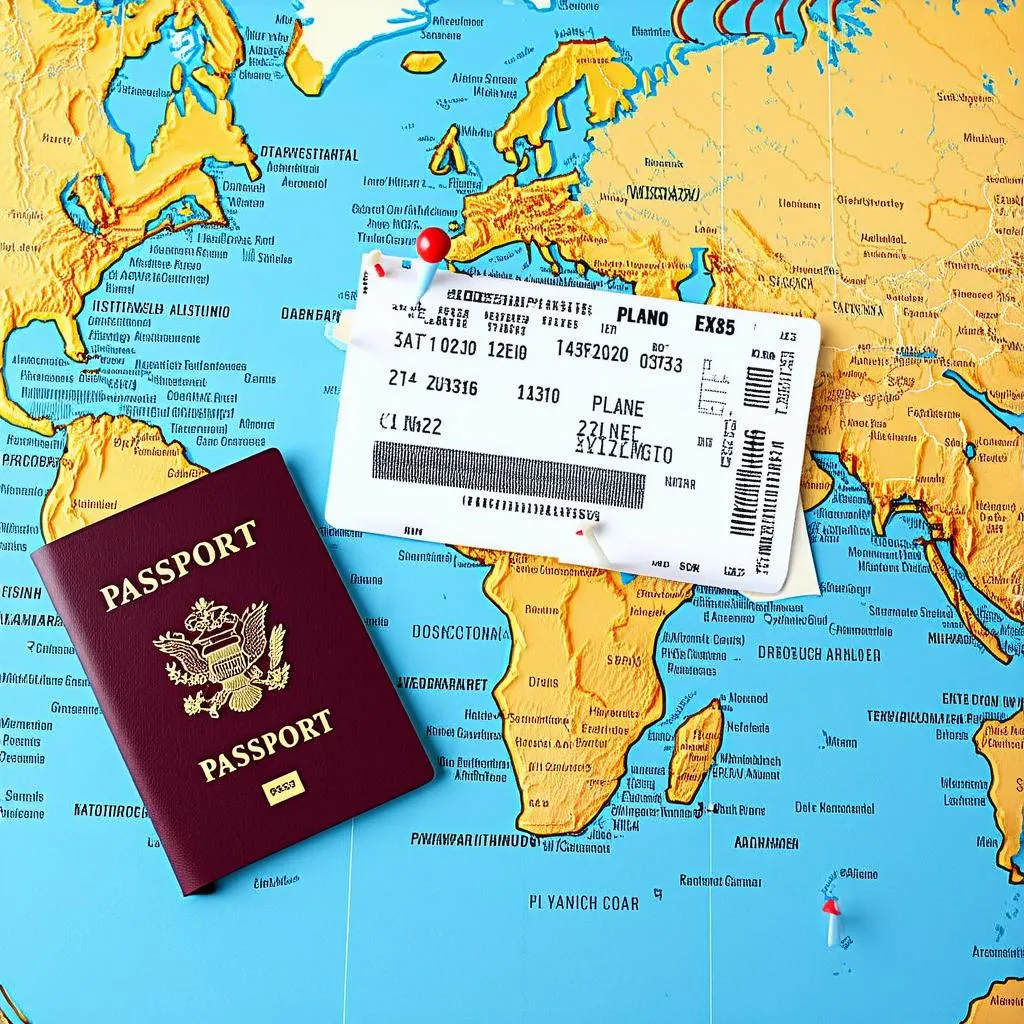“The world is a book and those who do not travel read only one page.” – Saint Augustine. This quote resonates with a deep human desire – the desire to explore, experience, and discover the world beyond our immediate surroundings. But does everyone have the right to travel? It’s a complex question with a multifaceted answer.
The Right to Travel: A Global Perspective
The Universal Declaration of Human Rights states that “everyone has the right to leave any country, including his own, and to return to his country.” This implies a fundamental right to travel, but the reality is more nuanced. While the right to leave one’s country is generally recognized, the right to enter another is subject to that country’s laws and regulations.
Passports, Visas, and Bureaucratic Hurdles
Think of a time you planned a trip abroad. Did you encounter paperwork, visa applications, or specific entry requirements? These are all examples of how sovereign nations exercise control over their borders. For instance, a traveler from Vietnam wishing to visit the bustling streets of Paris, France, would need to secure a Schengen visa. Similarly, someone from the US hoping to experience the vibrant culture of Tokyo, Japan, may require a temporary visitor visa.
Factors influencing these regulations include:
- National Security: Countries restrict entry to protect their citizens and interests from perceived threats.
- Immigration Control: Governments manage migration flows to regulate economic impact and social balance.
- Public Health: Travel restrictions, like those imposed during the COVID-19 pandemic, can mitigate the spread of diseases.
 Passport and Plane Ticket
Passport and Plane Ticket
Beyond Legal Rights: Accessibility and Opportunity
The right to travel extends beyond legal documents. Socioeconomic factors like financial resources, access to information, and social mobility significantly impact an individual’s ability to travel.
Consider these scenarios:
- Can someone working multiple jobs to make ends meet easily afford a vacation?
- Does a lack of internet access hinder someone’s ability to research and plan a trip?
- Do social obligations or family responsibilities limit travel opportunities for certain individuals?
These questions highlight the disparity in access to travel, even when legal rights are guaranteed.
Travel and Feng Shui: Finding Harmony in Exploration
In Feng Shui, travel is believed to enhance the “Chi” or energy flow in your life. Each direction corresponds to specific energies. For example, traveling east is associated with health and family harmony, while west promotes creativity and children’s luck.
Expert Insight:
“Traveling not only broadens our horizons but also balances our internal compass. By consciously choosing travel directions aligned with our personal goals, we can invite positive energy and growth into our lives,” says Feng Shui consultant, [Random Expert Name], author of “[Fictional Book Title on Feng Shui and Travel]”.
 Woman Meditating on a Mountain Top
Woman Meditating on a Mountain Top
Planning Your Journey: Tips and Considerations
Whether you dream of exploring ancient ruins in Rome, trekking through the Amazon rainforest, or simply enjoying a relaxing beach vacation, careful planning is key.
Essential Preparations:
- Documentation: Ensure your passport is valid and obtain necessary visas well in advance. Check out our article on [What ID is Required for Domestic Travel?] (https://travelcar.edu.vn/what-id-is-required-for-domestic-travel/) for more information.
- Finances: Budget realistically for flights, accommodation, food, activities, and unforeseen expenses.
- Health: Consult your doctor about required vaccinations and necessary health precautions for your destination. Read our article on [Do I need a vaccine to travel?] (https://travelcar.edu.vn/do-i-need-vaccine-to-travel/) for guidance.
- Research: Learn about local customs, laws, and etiquette to ensure a respectful and enjoyable experience.
FAQs about the Right to Travel
Q: What if my visa application is denied?
A: Each country has specific guidelines for visa applications. If your application is denied, you may be able to appeal the decision or reapply once you’ve addressed the reasons for denial.
Q: Can I be denied entry even with a valid visa?
A: While rare, border control authorities have the right to deny entry even with valid documentation if they suspect security risks, health concerns, or immigration violations.
Q: What are my rights if I face difficulties while traveling abroad?
A: Contact your embassy or consulate immediately for assistance. They can provide guidance, support, and intervene on your behalf if necessary.
Conclusion: Embracing the Privilege and Responsibility of Travel
The right to travel is a complex interplay of legal frameworks, socioeconomic factors, and individual circumstances. While not universally guaranteed in practice, it’s a privilege we should strive to make more accessible and equitable. As we embark on our journeys, let’s remember to travel responsibly, respectfully, and with an appreciation for the diverse cultures and environments we encounter.
What are your thoughts on the right to travel? Share your experiences and insights in the comments below! And for more travel tips and inspiration, explore other articles on travelcar.edu.vn.